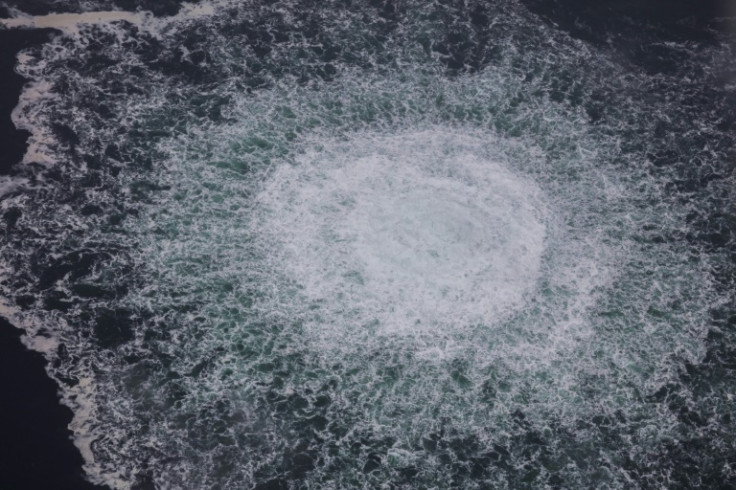Swedish Prosecutor Confirms Nord Stream Pipeline Sabotage

The blasts which destroyed sections of the Nord Stream pipelines carrying natural gas from Russia to Germany under the Baltic Sea in September were acts of sabotage, Swedish officials confirmed Friday.
The Nord Stream 1 and 2 pipelines have been at the centre of geopolitical tensions as Russia cut gas supplies to Europe in suspected retaliation against Western sanctions following Moscow's invasion of Ukraine.
Four large gas leaks were discovered on Nord Stream's two pipelines off the Danish island of Bornholm at the end of September, with seismic institutes recording two underwater explosions just prior.
Investigators had already said preliminary inspections had reinforced suspicions of sabotage.
Russia and Western countries, particularly the United States, have traded bitter barbs over who is responsible for the blasts.
"The analyses conducted found traces of explosives on several foreign objects" at the sites of the blasts, prosecutor Mats Ljungqvist, who is leading the preliminary investigation, said in a statement Friday.
Ljungqvist added technical analyses were continuing in order to "draw more reliable conclusions regarding the incident".
Sweden's prosecution authority said the "continued investigation will show if anyone can be formally suspected of a crime".
The Swedish Security Service (SAPO) -- which is conducting the investigation under the prosecutors' leadership -- confirmed the findings in a separate statement but both authorities declined to comment further.
The closely watched investigation has also been supported by Sweden's coast guard, the Swedish armed forces and the police.
While the leaks were in international waters, two of them were in the Danish exclusive economic zone and two in Sweden's.
At the end of October, Nord Stream sent a Russian-flagged civilian vessel to inspect the damage in the Swedish zone.
The same week the prosecution authority announced it was conducting a second probe of the damage to complement the first done in early October.
In early November, the operator said roughly 250 metres (820 feet) of the of the Nord Stream 1 pipeline had been destroyed and that craters with a depth of three to five metres had been found on the seabed.
Although the pipelines were not in operation when the leaks occurred, they both still contained gas which spewed up through the water and into the atmosphere.
Moscow has accused Western countries of being behind the explosions of the pipelines, but has not provided any firm proof.
In early November, the Kremlin accused Britain of "directing and coordinating" the explosions.
The accusation was rejected as "distractions which are part of the Russian playbook" by a spokesman for British Prime Minister Rishi Sunak.
Ukraine and some Western countries have meanwhile pointed the finger at Russia.
In mid-October, Russia said it was ready to resume deliveries of gas through the parts of the pipeline not affected by the leaks, with President Vladimir Putin saying "the ball was in the EU's court".
© Copyright AFP 2024. All rights reserved.











